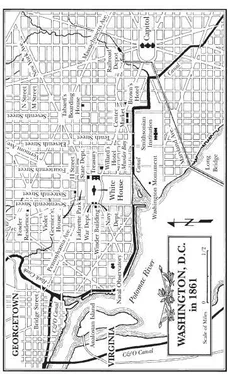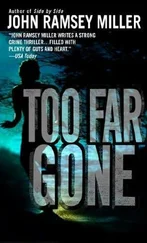John Miller - The First Assassin
Здесь есть возможность читать онлайн «John Miller - The First Assassin» весь текст электронной книги совершенно бесплатно (целиком полную версию без сокращений). В некоторых случаях можно слушать аудио, скачать через торрент в формате fb2 и присутствует краткое содержание. Жанр: Исторический детектив, на английском языке. Описание произведения, (предисловие) а так же отзывы посетителей доступны на портале библиотеки ЛибКат.
- Название:The First Assassin
- Автор:
- Жанр:
- Год:неизвестен
- ISBN:нет данных
- Рейтинг книги:3 / 5. Голосов: 1
-
Избранное:Добавить в избранное
- Отзывы:
-
Ваша оценка:
- 60
- 1
- 2
- 3
- 4
- 5
The First Assassin: краткое содержание, описание и аннотация
Предлагаем к чтению аннотацию, описание, краткое содержание или предисловие (зависит от того, что написал сам автор книги «The First Assassin»). Если вы не нашли необходимую информацию о книге — напишите в комментариях, мы постараемся отыскать её.
The First Assassin — читать онлайн бесплатно полную книгу (весь текст) целиком
Ниже представлен текст книги, разбитый по страницам. Система сохранения места последней прочитанной страницы, позволяет с удобством читать онлайн бесплатно книгу «The First Assassin», без необходимости каждый раз заново искать на чём Вы остановились. Поставьте закладку, и сможете в любой момент перейти на страницу, на которой закончили чтение.
Интервал:
Закладка:
The thought of food reminded him that Hughes had not yet made up his mind about staying for dinner. The young man’s own plantation was only a few miles away, and the pair had decided to travel from the city together. Bennett usually made the journey with Lucius, but this time he sat with Hughes, whose small cab was a bit cramped for three. Lucius rode behind in the Bennett carriage. It had been a long day for everybody. Yet neither Bennett nor Hughes was tired. In fact, they were both in an exceptionally good mood.
“So will you join us at the table this evening?” asked Bennett.
Hughes was peering out the window at the assembly of slaves. “I am anxious to get home,” he said, almost to himself. Then he snapped to attention and looked at Bennett. “But yes, I think I will join you, Langston.”
“That is good. You can send your carriage on and take one of my horses when we’re done.”
They rolled to a stop in front of the big house, which gave the children a chance to catch up and scramble around one of the carriages. They must think I’m in that one, Bennett thought.
Hughes hopped from the cab and then turned to help Bennett down. The aging plantation master stepped onto the gravel, treating his peg leg with special care. He expected the slave children to swarm him, but their attention was fixed firmly elsewhere. “Lucius! Lucius!” they cried, first in chaotic shouts and then a chant. Bennett felt abandoned.
“Lucius! Lucius!”
The old slave now emerged from his carriage. He wore an enormous grin on his face and greeted several members of his welcoming committee with quick pats to the head and some words Bennett could not hear. Lucius looked up and saw his master about twenty feet away, just standing there and staring. The slave’s smile disappeared.
“Lucius! Lucius!”
Lucius shushed the little throng and reached into his carriage. He pulled out a broad-rimmed hat and a big cane and walked at a brisk pace to where Bennett stood. The slave’s miniature entourage followed right behind, not yelling any longer but giggling the whole way.
“Here you are, sir,” said Lucius as he handed Bennett the hat and cane.
“Thank you, Lucius.”
The two men looked at each other in silence. Bennett could see that Lucius was anxious at the apparent snub his crowd of young admirers had just delivered.
“It must be good to see your family again,” said the master.
“Yessir,” replied the slave. “Sorry, sir.”
“Don’t worry about it, Lucius. I can see a couple of your grandchildren here. Hello, Maggie,” he said, bending over to look at a small girl clutching Lucius’s leg. She took a step back. Bennett smiled and straightened up. “They ought to be happy at the sight of their grandfather!” he laughed, turning to the adult slaves who had just watched all of this. “And look, Lucius: over there is Portia. How this fine granddaughter of yours has become a lovely woman!”
Portia blushed. “Good evening, Mr. Bennett,” she said.
“Good evening, everybody!”
A buzz of activity erupted around the plantation master. A handful of slaves started to tend to the carriage and its horses, a couple more unloaded boxes and trunks, and a few others inquired about the ride. Lucius dashed into the house. As this was going on, a white man came into view from the far side of the manor. He barked orders from a hundred feet away in a booming voice, making it impossible to hear anything but his bellowing:
“Get those bags off and inside right away! Unhitch those horses! I want them cleaned tonight! Make sure there’s a table setting for Mr. Hughes!” The slaves were already attentive, but they seemed to move even more quickly at the sound of this loud man.
“Where did you ever find such an overseer, Langston?” asked Hughes. “I think they can hear him all the way to Charleston.”
“This place would not function without him,” laughed Bennett. “Hello, Mr. Tate.”
“Hello, sir. Welcome back. We missed you a few days ago.”
“Thank you, Mr. Tate. I longed to return too. But I could not ignore the recent events in Charleston.”
“Did you see the bombardment?”
“The whole city did. The entire population must have descended upon the Battery, even before dawn. Hughes and I managed to avoid the crowd by rising above it-we watched for two days through a spyglass on my rooftop. Nobody could actually hear the barrage because a strong wind was blowing out to sea. But we saw the wisps of smoke rise from Fort Moultrie and Morris Island and knew that Sumter was getting pounded. Every puff from our cannons won a cheer from the Battery. Around eight o’clock on Saturday morning, we could see a huge fire at Sumter, with enormous clouds of smoke billowing upward. This gave everybody a thrill. We thought Sumter would surrender at any moment. But the men inside continued to hang on for a few hours more. They must have been covered with soot, and I still wonder how they breathed.”
Bennett leaned on his cane and waved his arm about as he told the story, and Tate listened intently. Several of the slaves paused to hear the tale as well. The only person nearby not to give Bennett his full attention was Hughes, who could not take his eyes off Portia. She was short and fit, with bright eyes and caramel-colored skin that suggested race mixing somewhere in her background. Hughes guessed Portia was about eighteen years old. She was quite pretty-actually, she was beautiful-and he found himself desiring her. He quit looking, though, when he noticed the burly slave beside her. The big man’s arms were as thick as Hughes’s own neck. He stared directly at Hughes. It felt like a challenge. Hughes resented that. He refused to let a slave get in the way of anything he wanted.
As Bennett described Charleston’s jubilation when Sumter finally did surrender-ringing church bells, hot-blooded speeches, and bonfires lighting the sky through the night-Hughes gradually maneuvered himself beside Portia. Her concentration was fixed on the story, and she did not notice him approach. He leaned over and placed his lips next to her ear. “Mr. Bennett was correct,” he whispered. “You are a lovely girl.”
Portia trembled at the words. She looked at Hughes, who gave her a rakish smile. She frowned and took a step toward that big slave. “Joe,” she whispered, though she hardly needed to get his attention. She tried to focus on Bennett again but kept casting nervous glances in the direction of Hughes, who would not stop staring at her.
By now Bennett had returned to the subject of the federal troops trapped for weeks in Sumter and how they must have suffered, especially on the second day of the attack. “It is hard not to admire an enemy like that,” said Bennett. “But it is easy to feel contempt for the man who would force them through it. This Abraham Lincoln is a beast, Tate. He was not within his rights to keep the fort. I didn’t think he could sink further in my estimation, but he did when he made those poor men defend a cause as hopeless as Sumter’s. There was nothing they could do. Their effort went to waste, except that it must have satisfied Lincoln to let them endure pain and privation so that he could frustrate South Carolina, however briefly.”
Bennett’s face reddened as his excitement turned to anger. “Curse that man! He will stop at nothing to confound us. Look around you, Tate,” he said, gesturing to his house, his fields, and finally a few of his slaves. “All of what we have here will be gone if this man has his way. He is a danger to our lives and everything we hold dear. There is no other word for it: Lincoln is evil!”
Suddenly Bennett quit his harangue. The sermon had exhausted him. He breathed heavily. His forehead glistened with sweat. He removed his hat and rubbed his face with a handkerchief. Tate and the slaves wondered whether he was done and did not move. The old man replaced his hat and looked at the porch of his manor, where Lucius now stood. He had come back outside just as Bennett was concluding his outburst.
Читать дальшеИнтервал:
Закладка:
Похожие книги на «The First Assassin»
Представляем Вашему вниманию похожие книги на «The First Assassin» списком для выбора. Мы отобрали схожую по названию и смыслу литературу в надежде предоставить читателям больше вариантов отыскать новые, интересные, ещё непрочитанные произведения.
Обсуждение, отзывы о книге «The First Assassin» и просто собственные мнения читателей. Оставьте ваши комментарии, напишите, что Вы думаете о произведении, его смысле или главных героях. Укажите что конкретно понравилось, а что нет, и почему Вы так считаете.












